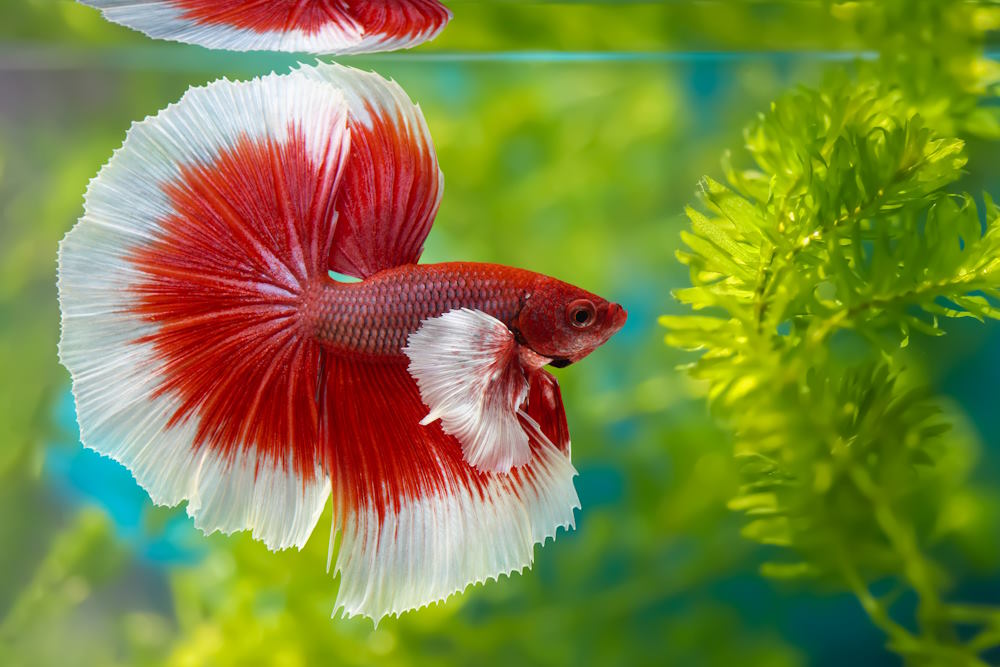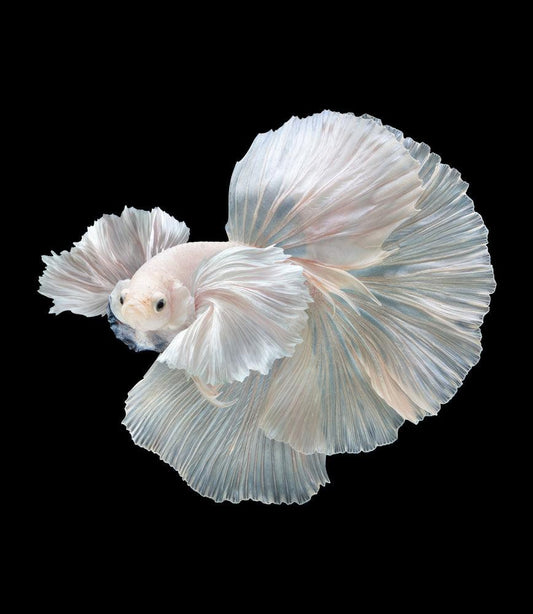Betta Fish Life Expectancy: Just How to Ensure Your Betta Lives Longer
Wiki Article
The Ultimate Overview to Betta Fish Treatment: Vital Tips for Keeping a Healthy and Flourishing Fish Tank Atmosphere
Reliable Betta fish care requires a comprehensive understanding of their one-of-a-kind environmental and physiological requirements. Developing an appropriate fish tank begins with selecting the right tank size and guaranteeing ideal water conditions, which are vital for the health and wellness and well-being of your Betta. Recognizing proper feeding methods and developing a favorable habitat can considerably impact your fish's vigor and habits. As you think about these foundational facets, it comes to be clear that preserving a flourishing aquarium setting calls for interest to detail and recurring dedication. What certain methods will you execute to improve your Betta's quality of life?Selecting the Right Storage Tank
Picking the suitable tank for your Betta fish is critical to guaranteeing its wellness and wellness. Bettas prosper in environments that mimic their all-natural habitats, which typically consist of calm, cozy waters. A container dimension of a minimum of five gallons is advised to offer ample swimming space, as smaller sized tanks can bring about tension and wellness concerns for these vibrant fish.
When picking a storage tank, think about the storage tank's shape and filtration system. Additionally, a dependable filtering system is crucial to keep water top quality and reduce the frequency of water modifications.
Temperature level regulation is an additional key factor; Bettas favor water temperature levels between 76 ° F and 82 ° F. Investing in an excellent heating system will ensure that the water continues to be within this variety, promoting a healthy and active lifestyle for your Betta. Finally, providing ideal tank decors and hiding areas will help in reducing stress and anxiety and motivate natural habits, better improving your Betta's well-being.
Keeping Water Top Quality
Preserving optimum water quality is important for the wellness and longevity of Betta fish. This needs normal monitoring of different parameters, including temperature level, pH, ammonia, nitrite, and nitrate levels. Bettas flourish in temperature levels between 76 ° F and 82 ° F, so preserving a steady temperature level is important. Sudden changes can bring about tension and health problem.The pH level must preferably drop in between 6.5 and 7.5. Regular testing utilizing a trustworthy water screening kit can assist make sure these criteria remain within the suitable ranges. Ammonia and nitrite degrees need to always go to 0 ppm, as even low focus can be harmful to Betta fish. Nitrate levels ought to be kept under 20 ppm to stop lasting wellness issues.
Regular water adjustments are crucial to preserving water quality. In addition, integrating a robust filtration system can aid in preserving water clarity and top quality, giving a much healthier environment for your Betta fish.
Perfect Feeding Practices
Providing a balanced diet regimen is crucial for the wellness and dynamic coloration of Betta fish, as their dietary demands play a significant duty in their total wellness. Betta fish are carnivorous naturally, needing a diet plan high in healthy protein. A combination of top quality pellets, frozen or live foods such as bloodworms, brine shrimp, and daphnia can provide the essential nutrients they require.Feed your my latest blog post Betta fish a couple of times a day, using only what they can consume within a couple of mins to avoid overfeeding and keep water high quality. Overfeeding can lead to obesity and health and wellness problems, including swim bladder disease. It is necessary to check their nutritional intake and readjust section sizes accordingly.
In enhancement to protein, a balanced diet should include minerals and vitamins to next page promote optimal wellness. Take into consideration supplementing their diet plan with high-grade flakes or pellets specifically formulated for Betta fish, as these frequently include essential additives.

Developing an Appropriate Habitat

Water top quality is paramount; preserve a temperature level in between 76 ° F and 82 ° F, and ensure the pH level ranges from 6 - betta fish.5 to 7.5. Routine water adjustments of 25-50% per week will assist maintain contaminants away and ensure a stable atmosphere
Including plants and concealing places is essential, as Betta fish are naturally territorial and appreciate having locations to discover and retreat. Live or silk plants, in addition to caverns and ornaments, can create a revitalizing environment.

Regular Wellness Checkups
Conducting normal health and wellness checkups is crucial for ensuring the health of Betta fish, as early discovery of potential concerns can prevent significant health and wellness troubles. These examinations need to encompass a detailed assessment of the fish's physical problem, habits, and ecological factors.Begin by observing the Betta fish for any type of indicators of distress, such as lethargy, loss of cravings, or unusual swimming patterns. Furthermore, evaluate the fins and body for signs of staining, sores, or fin rot, which can suggest infections or bloodsuckers. Frequently checking the water quality in the fish tank useful source is equally important; criteria such as pH, ammonia, nitrite, and nitrate levels must be kept within optimal ranges to stop stress and anxiety and disease.
Moreover, think about preserving a log of health and wellness monitorings and water high quality tests. Timely intervention can make a significant distinction in the recuperation of your Betta fish, making certain a lengthy and healthy life in a well-kept aquarium environment.
Verdict
Finally, effective Betta fish treatment depends upon producing and maintaining an optimum fish tank atmosphere. Key factors consist of choosing an appropriately sized tank, making certain constant water high quality, sticking to excellent feeding techniques, and making an environment that reduces stress. Normal health and wellness examinations are important for very early discovery of potential concerns. By complying with these standards, aquarists can advertise the well-being and vibrancy of Betta fish, eventually leading to a prospering marine ecological community.Report this wiki page